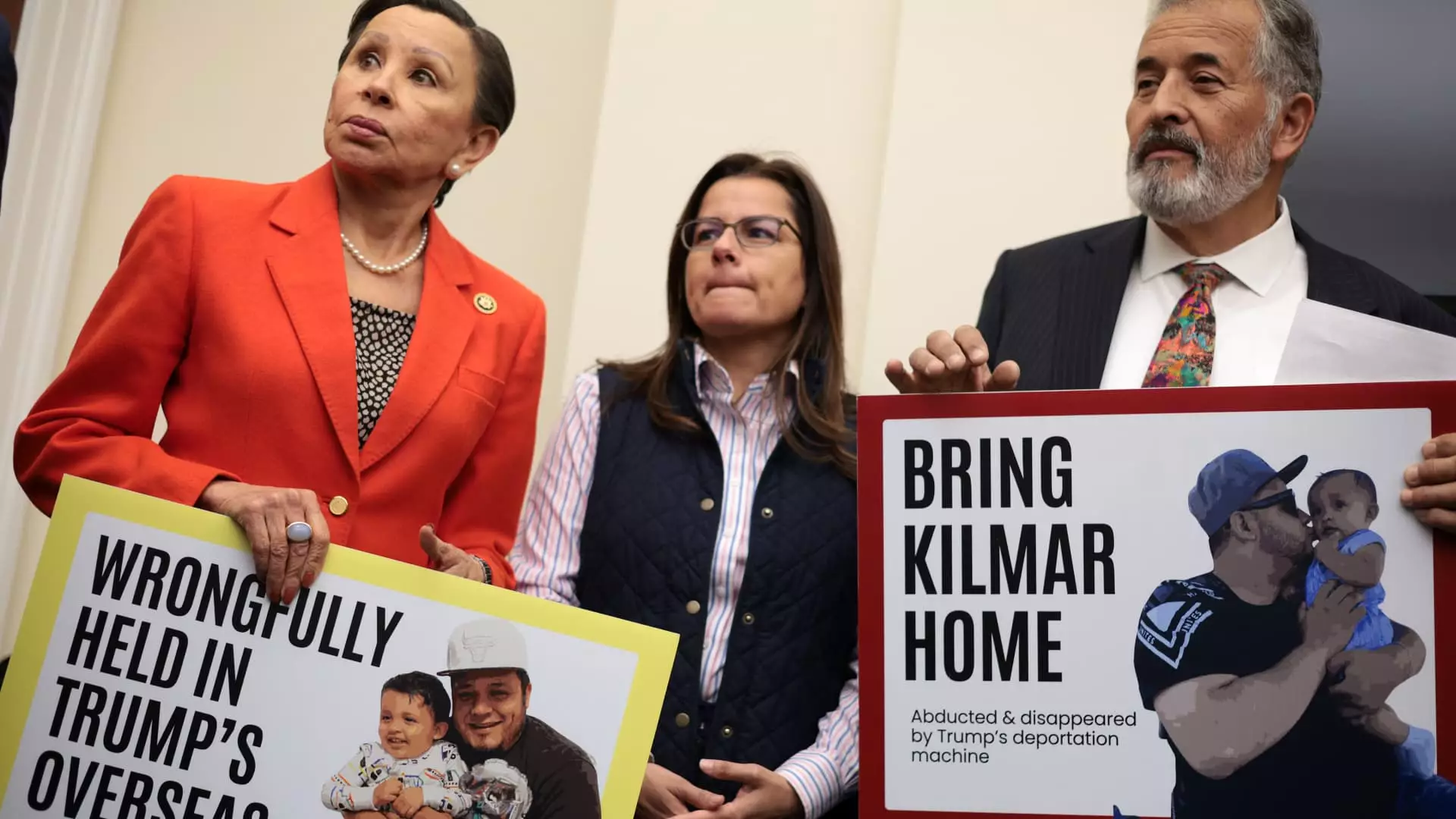The ongoing tumult surrounding the case of Kilmar Abrego Garcia starkly illustrates a broader, systemic issue in American governance during the Trump administration: the apparent disdain for the judiciary and its authority. With a U.S. judge commanding that officials provide documentation and testimony regarding Garcia’s wrongful deportation to El Salvador, we see a critical moment where the respect for legal processes hangs in the balance. U.S. District Judge Paula Xinis’ insistence on transparency shouldn’t just be a procedural norm; it should be a fundamental trait in any mature democracy. However, the lack of cooperation from the administration exemplifies a concerning trend of negligence that undermines the checks and balances essential for a healthy governance structure.
Judge Xinis, an Obama appointee, has articulated a zero-tolerance policy for the executive branch’s ‘gamesmanship’—and rightly so. When judicial orders are treated with such levity, it creates a hazardous precedent that encourages future administrations to undermine the very authority meant to keep them in check. This isn’t merely about one man’s life; it’s emblematic of a presidency that not only flouts judicial decisions but seeks to redefine how power is allocated among branches of government. If an administration feels emboldened to dismiss court ruling compliance, what does that mean for American democracy?
Immigration Policy Under Fire
Abrego Garcia’s plight serves as a vivid illustration of the Trump administration’s harsh immigration policies and their questionable legal foundations. Deported in March despite an order protecting him from removal presents a chilling narrative that exposes vulnerabilities within the U.S. immigration system. This case raises legitimate concerns about the adherence to legal protections, hinting at a broader pattern in which the administration’s approach to immigration enforcement increasingly seems an end justified by means that defy legality.
Among the most disconcerting developments is the administration’s reliance on antiquated laws like the Alien Enemies Act from 1798. In an era of global interconnectedness, invoking such a relic in the context of deportations looks more like a desperate legal maneuver than a grounded policy decision. Associating innocent individuals with vague notions of terrorism not only erodes civil liberties but also fosters an environment of fear, suspicion, and division.
Caught in Political Crossfire
Garcia’s situation cannot be divorced from the increasingly hostile political climate, exacerbated by threats directed at institutions of higher education and legal entities that dare to dissent. President Trump’s attacks on Harvard for rejecting demands to enforce a specific political narrative reflect a disturbing trend: the individualization of institutional relationships with the executive branch based on compliance or loyalty. This tactic threatens not only academic independence but also the essential qualities of robust civic discourse. Democratic institutions survive on the basis of integrity and independence. Yet, under this administration, the executive branch has been characterized by intimidation aimed at silencing dissident voices.
Critics argue that targeting law firms and mandating compliance through fear is strikingly reminiscent of authoritarian regimes. The implications are profound: if legal representation is undermined or intimidated, we risk the erosion of the core principle that justice must be accessible to all. The unfortunate reality is that many will find themselves entangled in the web of this administration’s political machinations, with their fates hanging in the balance based on nothing more than the whims of power dynamics.
A Citizen’s Plea: The Heart of a Democracy
In this distressing climate, hearing the human element in this case is crucial. Garcia’s wife, Jennifer Vasquez Sura, displayed remarkable courage and vulnerability by appealing to both the U.S. and El Salvadoran governments, humanizing an otherwise stark legal battle. Her words, pleading for compassion and sanity, underscore the painful reality that political machinations often disregard the lives they affect. This moment highlights democratic integrity’s precariousness: at its heart lies the reality that individual lives are impacted immensely by the interplay of political decisions and judicial actions.
The cry of a citizen exemplifies the moral obligation that the state has towards its people—a focus on accountability and respect for human rights. In an environment riddled with political strife, the humanity of individuals gets overshadowed, buried beneath layers of bureaucratic process and executive power.
Strikingly, while the judiciary has a role to demand compliance and uphold legal decisions, it can only be effective if the executive branch respects those boundaries. The ramifications of failing to do so extend far beyond a single case, reverberating through the very fabric of American democracy. It is imperative to remember that the rule of law should serve as a shield for the vulnerable, not a weapon wielded against them.


Leave a Reply